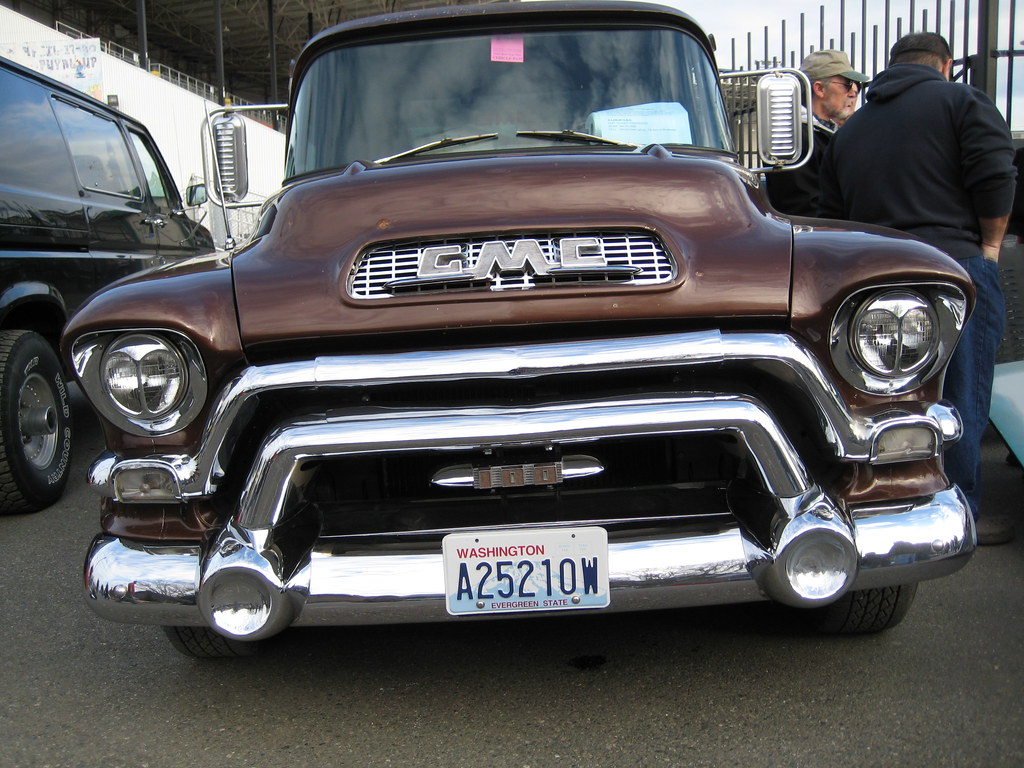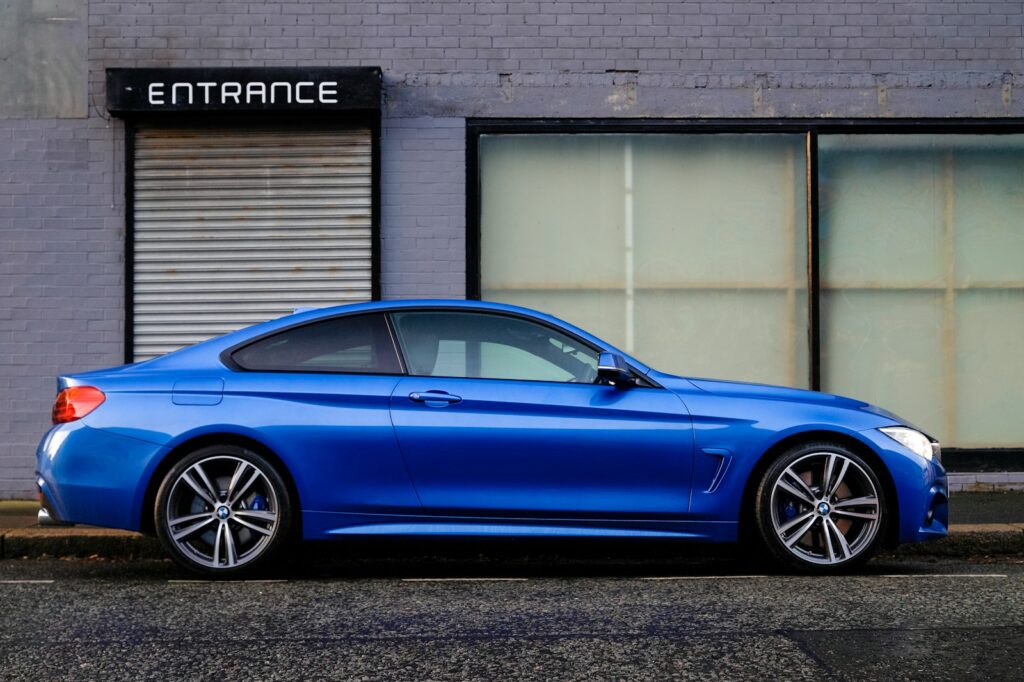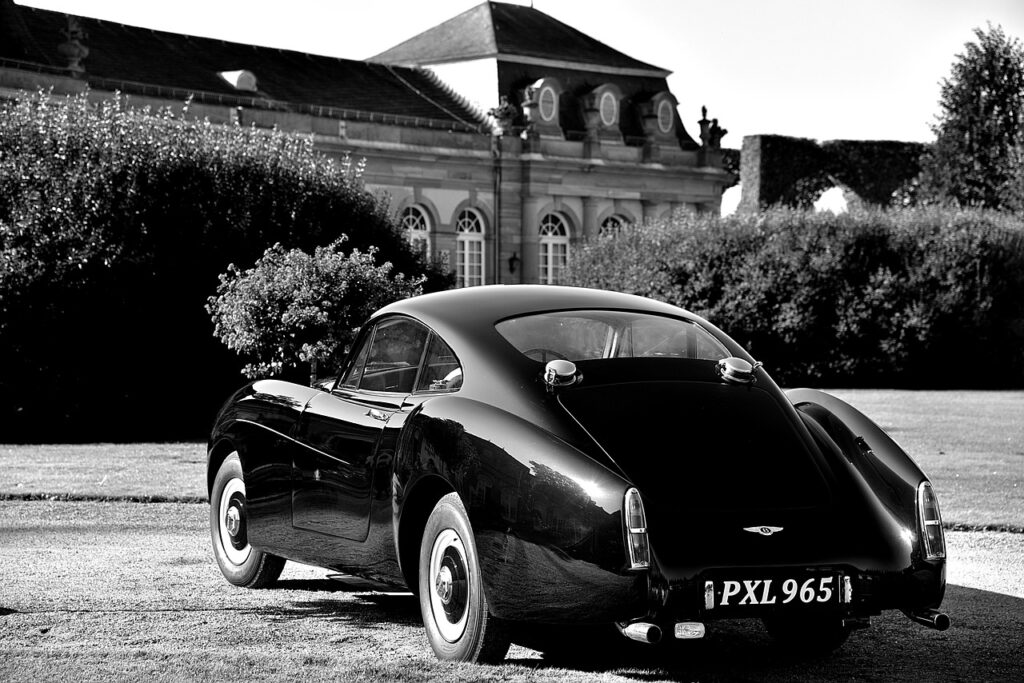
The thrill of shopping for a new set of wheels is often overshadowed by one nagging, utterly critical question: is it reliable? It’s a make-or-break consideration, especially when you consider that the average age of cars on the road today hovers around a remarkable 12 years. Nobody wants to be stranded on the side of the road, facing down a hefty repair bill, or dealing with constant trips to the service center when they’ve just dropped a significant chunk of change on a supposedly new-to-them vehicle. We’re here to cut through the marketing fluff and give you the unvarnished truth about which brands might just be a money pit in disguise.
At MotorEasy, powered by AI and hundreds of thousands of years worth of real claims data, we know precisely how often a car goes wrong, how expensive it is to repair, and how likely it is to go wrong in the future. This isn’t just theory; it’s hard data from the trenches of car ownership. Our reliability index scores each make and model out of 10, providing an unparalleled, trustworthy resource for drivers and buyers alike. We assess everything from breakdown frequency to average repair costs and those pesky common mechanical issues that seem to plague specific models, painting a clear, actionable picture of automotive dependability.
In our quest to help you avoid future headaches, we’re tapping into the legendary work of Consumer Reports, which, for 88 years, has been helping car buyers make smart choices. Their 2025 reliability rankings, based on data from over 300,000 vehicles covering 17 common trouble areas, are a stark reminder that some brands simply aren’t worth the risk. Complimenting their insights with CarEdge’s market updates and NHTSA recall data, we’re spotlighting the brands you ought to approach with extreme caution. If you’re considering one of these, you’d better have a robust car maintenance emergency fund or get those extended warranty quotes ready, because these are the speed bumps on your road to automotive satisfaction.
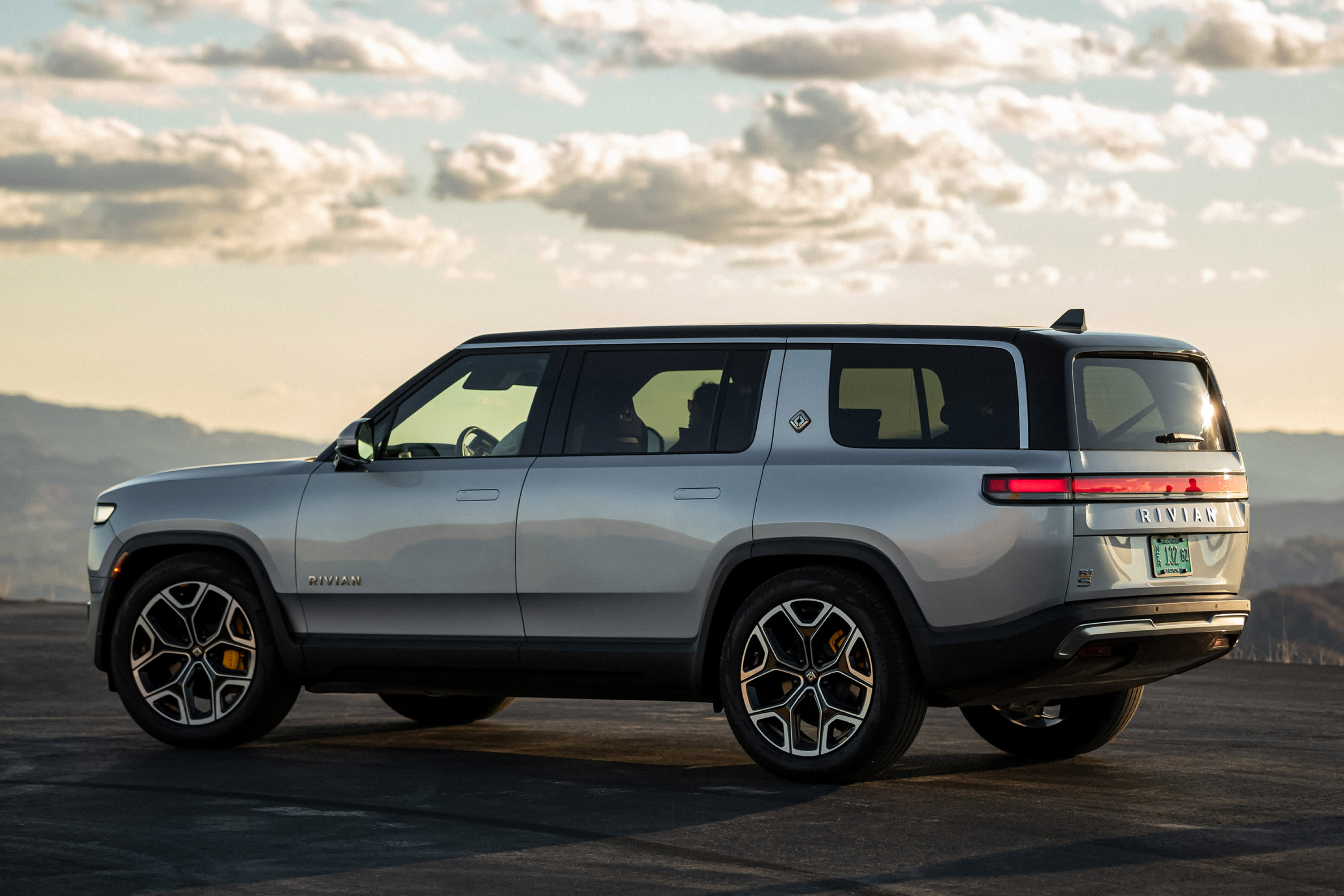
1. **Rivian: The Electric Dream That’s Still a Nightmare in the Making**
When Rivian burst onto the scene, it promised a new era of electric adventure vehicles, a rugged yet sophisticated alternative to the established EV players. With its striking design and impressive off-road capabilities, it certainly captured the imagination. However, according to Consumer Reports’ 2025 rankings, imagination isn’t translating into dependability. Rivian earns the dubious distinction of being the least reliable car brand with a Predicted Reliability Score of just 18 out of 100. That’s not just low; that’s a red flag waving vigorously in a gale-force wind.
Considering the average selling price of a Rivian is estimated at a staggering $85,000, this dismal reliability score is particularly concerning. Buyers are shelling out top dollar for a vehicle that, statistically, is highly likely to encounter problems. This isn’t merely an inconvenience; it represents a significant risk to one’s investment. The enthusiasm for electric vehicles, while admirable, often overlooks the practical realities of new technologies, and Rivian appears to be grappling with significant teething issues that manifest in real-world dependability woes.
The context also subtly points towards a broader trend that could impact Rivian: the general reliability of electric vehicles (EVs). While the landscape is improving, fully electric vehicles (BEVs) still experience 42% more problems than traditional gas-powered or hybrid vehicles. This isn’t to say all EVs are unreliable, but new entrants like Rivian, without decades of manufacturing refinement, might be feeling the brunt of these challenges more acutely. Early adopters often become beta testers, and in Rivian’s case, it seems those tests are revealing substantial areas for improvement.
It’s a tough pill to swallow for a brand that has generated so much buzz. While innovation is essential, reliability remains the bedrock of customer satisfaction, especially at such a premium price point. For potential buyers, the message is clear: the road less traveled by Rivian owners might just be riddled with more potholes than anticipated. Until those reliability scores see a dramatic improvement, this trailblazing EV might be better off admired from a distance than owned in the driveway.
Read more about: Beyond the Showroom Shine: A Mechanic and Enthusiast’s Unvarnished Truth About 13 Cars and Why New Isn’t Always Better

2. **Cadillac: Luxury Brand, Questionable Durability**
Cadillac, a name synonymous with American luxury and stately presence, finds itself in an unenviable position on the 2025 reliability rankings. With a Predicted Reliability Score of 27 out of 100, it sits firmly among the bottom feeders. This is a particularly harsh blow for a brand that, traditionally, has tried to convey an image of refined engineering and robust build quality. When you’re paying an average selling price of $72,586 for a vehicle, you expect more than just plush interiors and a comfortable ride; you demand unwavering dependability.
This low score for Cadillac isn’t an isolated incident; it’s part of a larger trend affecting General Motors brands. The context explicitly states, “all GM brand rank near the bottom,” and further highlights that “General Motors, on the other hand, had falling reliability ratings, with three of the four GM brands on the bottom 10.” Cadillac, unfortunately, is a prime example of this widespread corporate reliability issue. The problem isn’t just about individual models; it points to systemic challenges within GM’s manufacturing and engineering processes that are impacting its premium offerings.
The recall data further paints a concerning picture, with 34 recalls noted across all General Motors brands. While recalls are a necessary safety measure, a high number can indicate underlying quality control issues and a reactive rather than proactive approach to identifying and rectifying faults. For a luxury brand, this can significantly erode consumer confidence. Owners expect meticulous craftsmanship, not a string of service bulletins.
Cadillac’s market supply of 89 days, which is considered average, doesn’t offer much in the way of mitigation. An average supply coupled with poor reliability suggests that while vehicles are moving, the long-term ownership experience is likely to be fraught with unexpected issues. It’s a clear signal that while Cadillac continues to offer attractive designs and high-tech features, its core reliability has simply not kept pace, leaving buyers with a luxurious ride that might spend too much time in the shop.
Read more about: Steer Clear! Unpacking 13 Overrated Car Brands That Are All Hype, No Substance – Reliability Gaps & High Upkeep Drive Frustration
3. **GMC: Workhorse Woes and GM’s Reliability Rut**
GMC, another pillar of the General Motors empire, shares Cadillac’s reliability struggles, tying for a Predicted Reliability Score of 33 out of 100. This places it squarely in the lower echelons of dependability, making it a brand to eye with extreme skepticism if you prioritize trouble-free ownership. For a brand that pitches itself on professional grade engineering and rugged capability, this score is nothing short of an embarrassment. People buy GMC trucks and SUVs for their perceived strength and durability, only to find them riddled with Consumer Reports’ reported issues.
Again, the shadow of General Motors’ overall reliability struggles looms large here. With GMC joining Cadillac and Chevrolet on this infamous list, it becomes abundantly clear that GM’s challenges are not confined to a single segment or brand identity. The shared 34 recalls across all General Motors brands further underscores a pervasive issue. These aren’t just minor glitches; these are problems significant enough to warrant federal intervention and owner notification, indicating a concerning pattern of defects that impact safety and functionality.
At an average selling price of $67,516, GMC vehicles represent a substantial investment for many buyers, particularly those who rely on their trucks and SUVs for work or heavy-duty tasks. The idea that a vehicle designed for such demanding use could be so unreliable is a bitter pill to swallow. It suggests that while the aesthetics and features might be appealing, the fundamental engineering and quality control could be letting owners down when it matters most.
The market supply for GMC stands at 79 days, which is considered average. This might suggest a steady demand, but it doesn’t absolve the brand of its reliability shortcomings. The sheer volume of issues reported, combined with the corporate-wide recall problem, paints a picture of a brand that needs to seriously re-evaluate its commitment to long-term dependability. For potential buyers, it’s a warning: that ‘professional grade’ badge might not extend to the reliability you expect.

4. **Jeep: Rugged Spirit, Unreliable Reality?**
Jeep, a brand celebrated globally for its iconic off-road prowess and adventurous spirit, surprisingly finds itself sharing a Predicted Reliability Score of 33 out of 100 with GMC. This placement on the list of least dependable car brands, according to Consumer Reports, might come as a shock to its loyal fan base. The image of a bulletproof vehicle conquering the wilderness doesn’t quite align with data suggesting significant reliability concerns for daily drivers.
Adding to the complexity, the context presents a fascinating dichotomy. While Consumer Reports rates Jeep poorly, the text also mentions that “Jeep makes J.D. Power’s list of car brands with the fewest complaints per 100 vehicles.” This highlights that different methodologies can yield different results. However, for the purpose of identifying “speed bumps on the road to satisfaction,” Consumer Reports’ critical assessment, which places Jeep squarely among the least reliable, is paramount. It suggests that while some studies might point to relative improvement, significant issues persist, earning it a spot on this list.
The recall data for Jeep, falling under all FCA brands, is particularly alarming, with 72 recalls reported. This is a strikingly high number and suggests a systemic problem across a wide range of vehicles manufactured by the Stellantis group (which includes FCA). Such frequent recalls can be indicative of fundamental design or manufacturing flaws that extend beyond mere nuisances, potentially impacting safety and long-term durability. It undermines the very idea of a robust, go-anywhere vehicle.
With an average selling price of $50,001 and a high market supply of 126 days, Jeep faces a challenge. High supply can sometimes indicate softening demand or an overproduction of vehicles that are perhaps not meeting consumer expectations, especially when coupled with poor reliability scores and numerous recalls. For a brand that thrives on its reputation for resilience, this data should give any prospective buyer pause. The adventurous spirit of a Jeep might be exciting, but the reality of its ownership could involve more time at the service center than on the trail.
Car Model Information: 2021 Jeep Wrangler Unlimited 80th Anniversary
Name: Jeep
Logo: Jeep wordmark.svg
LogoSize: 200
Caption: Jeep dealership in Rockville, Maryland (2004)
Producttype: Sport utility vehicle,Luxury vehicle
Currentowner: Stellantis
Producedby: Chrysler
Country: U.S.
Introduced: [object Object]
Related: Willys MB
Markets: refn
Previousowners: Willys,Kaiser Jeep,American Motors Corporation
Ambassadors: Bob Broderdorf, Jeep Brand CEO
Website: https://www.jeep.com/|jeep.com
Categories: Accuracy disputes from February 2020, All accuracy disputes, All articles with dead external links, All articles with self-published sources, American Motors
Summary: Jeep is an American automobile brand, now owned by multi-national corporation Stellantis. Jeep has been part of Chrysler since 1987, when Chrysler acquired the Jeep brand, along with other assets, from its previous owner, American Motors Corporation (AMC).
Jeep’s current product range consists solely of sport utility vehicles—both crossovers and fully off-road worthy SUVs and models, including one pickup truck. Previously, Jeep’s range included other pick-ups, as well as small vans, and a few roadsters. Some of Jeep’s vehicles—such as the Grand Cherokee—reach into the luxury SUV segment, a market segment the 1963 Wagoneer is considered to have started. Jeep sold 1.4 million SUVs globally in 2016, up from 500,000 in 2008, two-thirds of which in North America, and was Fiat-Chrysler’s best selling brand in the U.S. during the first half of 2017. In the U.S. alone, over 2400 dealerships hold franchise rights to sell Jeep-branded vehicles, and if Jeep were spun off into a separate company, it is estimated to be worth between $22 and $33.5 billion—slightly more than all of FCA (US). Bob Broderdorf is the current CEO of the Jeep brand worldwide.
Prior to 1940 the term “jeep” had been used as U.S. Army slang for new recruits or vehicles, but the World War II “jeep” that went into production in 1941 specifically tied the name to this light military 4×4, arguably making them the oldest four-wheel drive mass-production vehicles now known as SUVs. The Jeep became the primary light four-wheel-drive vehicle of the United States Armed Forces and the Allies during World War II, as well as the postwar period. The term became common worldwide in the wake of the war. Doug Stewart noted: “The spartan, cramped, and unstintingly functional jeep became the ubiquitous World War II four-wheeled personification of Yankee ingenuity and cocky, can-do determination.” It is the precursor of subsequent generations of military light utility vehicles such as the Humvee, and inspired the creation of civilian analogs such as the original Series I Land Rover. Many Jeep variants serving similar military and civilian roles have since been designed in other nations.
The Jeep marque has been headquartered in Toledo, Ohio, ever since Willys–Overland launched production of the first CJ or Civilian Jeep branded models there in 1945. Its replacement, the conceptually consistent Jeep Wrangler series, has remained in production since 1986. With its solid axles and open top, the Wrangler has been called the Jeep model that is as central to the brand’s identity as the 911 is to Porsche.
At least two Jeep models (the CJ-5 and the SJ Wagoneer) enjoyed extraordinary three-decade production runs of a single body generation.
In lowercase, the term “jeep” continues to be used as a generic term for vehicles inspired by the Jeep that are suitable for use on rough terrain.
In Iceland, the word Jeppi (derived from Jeep) has been used since World War II and is still used for any type of SUV.
Get more information about: Jeep
Buying a high-performing used car >>>
Brand: Jeep Model: Jeep
Price: $31,399 Mileage: 27,521 mi.

5. **Volkswagen: The People’s Car, the Driver’s Dilemma**
Volkswagen, often championed for its European engineering and sophisticated driving dynamics, enters our list of reliability laggards with a Predicted Reliability Score of 34 out of 100. This score, while slightly better than some of its peers on this unfortunate list, still places the brand firmly in the territory of “beware.” It’s a sobering reminder that a brand’s heritage or perceived quality doesn’t always translate into real-world dependability. For a company that has long prided itself on precision and engineering, this is a significant crack in its armor.
The context notes that this list features “a mix of manufacturers from around the world,” and Volkswagen’s inclusion certainly solidifies that point. It’s not just American domestic brands struggling; even global players with a reputation for solid builds can fall short when it comes to long-term reliability. The average selling price of a Volkswagen, at $36,255, is more accessible than some of the other luxury brands on this list, making its reliability issues potentially even more frustrating for everyday consumers who are looking for a practical, dependable vehicle without breaking the bank.
While specific recall numbers for Volkswagen alone aren’t detailed in this particular breakdown, its overall low predicted reliability score from Consumer Reports is a strong indicator of potential headaches. The 17 common trouble areas assessed by Consumer Reports cover a broad spectrum of potential faults, from engine and transmission issues to more modern problems like infotainment and driver assistance systems. Given the trend we’ve seen with other brands, it’s reasonable to infer that Volkswagen likely struggles in one or more of these critical areas.
With an average market supply of 85 days, Volkswagen vehicles are seemingly finding homes. However, savvy buyers should look beyond initial appeal and consider the long-term implications of owning a vehicle from a brand that consistently ranks low on reliability indices. The dream of German engineering often comes with the expectation of enduring quality, but for Volkswagen in 2025, that dream appears to be interrupted by too many unexpected service appointments. It’s a clear signal to temper expectations and prioritize an emergency fund if a VW is on your shopping list.
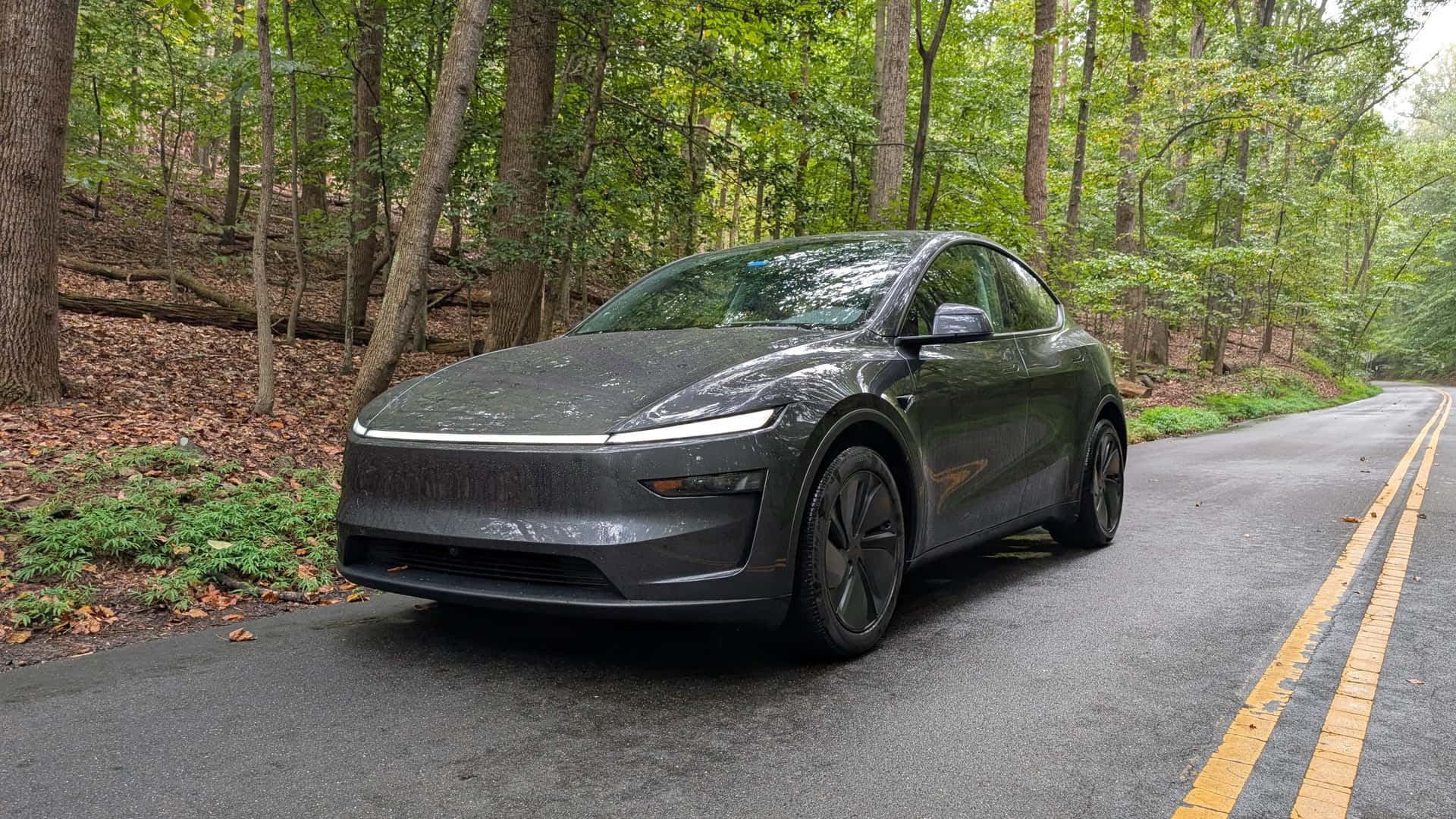
6. **Tesla: The Future is Now, But Is It Reliable?**
Tesla, the undisputed king of electric vehicle innovation and a brand that has undeniably reshaped the automotive landscape, surprisingly lands on this list with a Predicted Reliability Score of 36 out of 100. For a brand that commands such a fervent following and pushes boundaries with every new release, this score is a clear signal that cutting-edge technology doesn’t automatically equate to bulletproof dependability. Buyers often shell out an estimated $41,000 for a Tesla, expecting not just a revolutionary driving experience, but also the peace of mind that comes with modern engineering.
The context provides a stark reminder that “with the likes of Rivian, Tesla, Volvo and Volkswagen on the list, it’s clear that when it comes to reliability, you don’t always get what you pay for.” Tesla’s inclusion here, alongside other premium and mainstream brands, underscores the notion that price tags and perceived innovation don’t always guarantee a trouble-free ownership experience. The brand’s rapid scaling and introduction of new features can sometimes lead to growing pains that manifest as reliability concerns in the real world.
Furthermore, Tesla’s status as a fully electric vehicle (BEV) brand places it within a broader reliability trend highlighted by Consumer Reports. While the situation is improving, BEVs “have 42% more problems than gas-powered or traditional hybrid vehicles.” This isn’t to say all Tesla owners will face significant issues, but the data suggests that fully electric vehicles, as a category, are still ironing out their kinks compared to their internal combustion engine (ICE) counterparts. It’s a work in progress, and early adopters often find themselves navigating those unpaved roads.
So, while Tesla continues to innovate and capture the imagination of drivers worldwide, prospective buyers should approach with a healthy dose of realism. The thrill of rapid acceleration and advanced autopilot features is undeniable, but the data suggests that owners might also need to factor in potential visits to the service center. It’s a brand that embodies the future, but the road to full reliability for that future still has some construction zones.
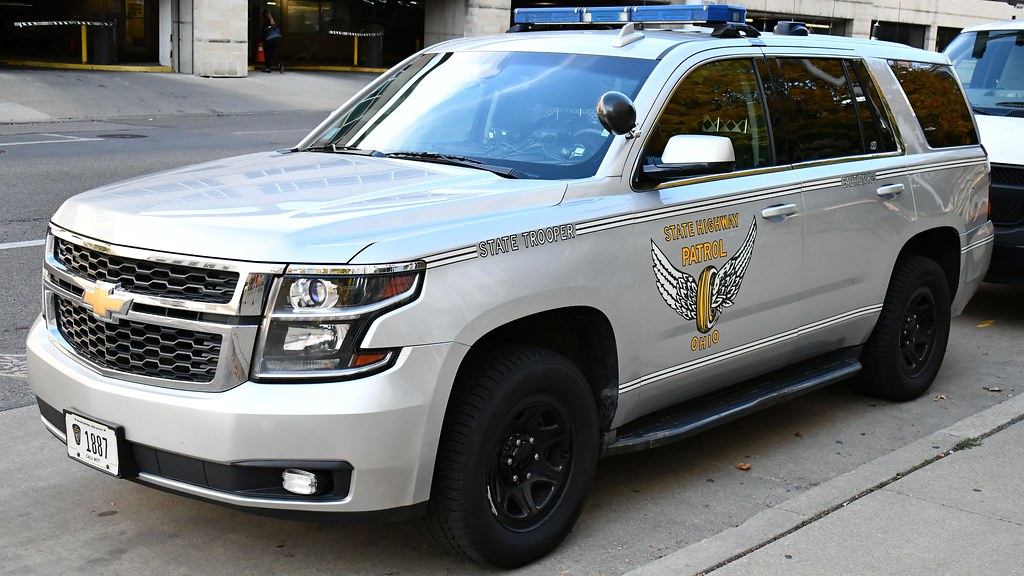
7. **Chevrolet: American Icon, Enduring Reliability Headaches**
Chevrolet, a cornerstone of American automotive history and a brand deeply woven into the fabric of daily life, earns a Predicted Reliability Score of 37 out of 100. For a manufacturer that produces some of the nation’s best-selling trucks and SUVs, this score is a concerning indicator that the iconic Bowtie might be tarnished when it comes to consistent dependability. When you’re spending an average of $49,081 on a new Chevy, the expectation is ruggedness and reliability, not a regular appointment with the repair shop.
Like its GM siblings, Cadillac and GMC, Chevrolet finds itself struggling with systemic reliability issues. The context explicitly states that “all GM brand rank near the bottom,” and that “General Motors, on the other hand, had falling reliability ratings, with three of the four GM brands on the bottom 10.” This isn’t just a coincidence; it points to a broader challenge within the General Motors corporate structure that impacts quality control and long-term durability across its brands, including the mighty Chevrolet.
The shared burden of 34 recalls across all General Motors brands further solidifies this troubling trend. While recalls are a vital consumer protection, a high number suggests a pattern of defects that require significant post-production rectification. For Chevrolet owners, this can mean unexpected trips to the dealership, downtime, and the erosion of confidence in a brand that is supposed to be synonymous with steadfast performance. The promise of an 87-day average market supply doesn’t outweigh the cloud of reliability concerns.
It’s a tough pill for an American automotive legend to swallow. While Chevrolet vehicles offer compelling features, strong towing capabilities, and a familiar presence, the underlying reliability data from Consumer Reports suggests that prospective buyers need to proceed with caution. The appeal of a new Chevy is undeniable, but ensuring it lives up to its heritage of durability might require a closer look at potential extended warranties or a robust emergency fund.
Read more about: Beyond the Horsepower: Unveiling 15 Car Brands with Engines Built for the Long Haul

8. **Volvo: Scandinavian Style, Unsettling Reliability**
Volvo, a brand globally recognized for its commitment to safety, sophisticated design, and a certain minimalist Scandinavian charm, finds itself with a Predicted Reliability Score of 38 out of 100. This is a particularly perplexing placement for a brand that often commands a premium average selling price of $62,960. When you invest in a Volvo, you’re buying into an image of meticulously engineered safety and refined luxury; a low reliability score is jarring against that backdrop.
The context provides a clear, albeit unsettling, observation: “With the likes of Rivian, Tesla, Volvo and Volkswagen on the list, it’s clear that when it comes to reliability, you don’t always get what you pay for.” This sentiment perfectly encapsulates Volvo’s predicament. While the brand excels in areas like occupant protection and elegant interiors, Consumer Reports’ data indicates that the day-to-day, trouble-free ownership experience might not be as smooth as the brand’s reputation suggests. It’s a stark reminder that outward appeal doesn’t always reflect internal fortitude.
Volvo’s market supply of 108 days is classified as high, which can sometimes signal an oversupply relative to demand or a slower sales pace. When coupled with a concerning reliability score, this high supply might suggest that discerning buyers are already exercising caution or that the brand is facing challenges in moving units as quickly as desired. It’s a precarious balance between maintaining brand prestige and delivering on fundamental consumer expectations for dependability.
The takeaway for potential Volvo buyers is a nuanced one. While you’ll undoubtedly benefit from some of the industry’s most advanced safety features and a cabin that exudes understated luxury, the reliability data from Consumer Reports warrants serious consideration. That sleek, safe, and seemingly sophisticated package might conceal a propensity for unexpected issues, making due diligence on maintenance costs and warranty options an absolute must. The Scandinavian dream, it seems, can sometimes come with an unexpected service appointment.
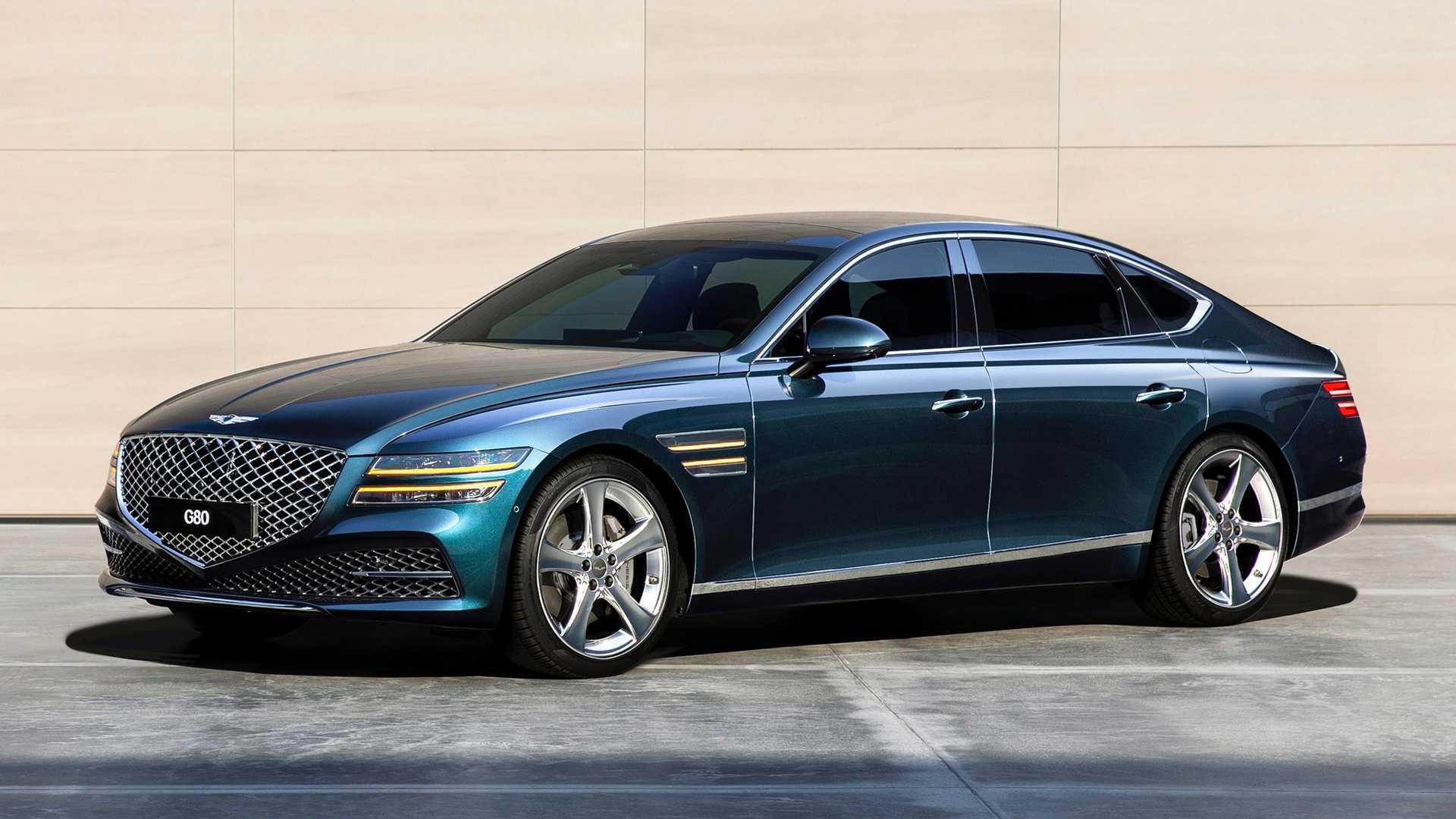
9. **Genesis: Luxury Aspirations, Reliability Roadblocks**
Genesis, Hyundai’s luxury offshoot, has made significant strides in recent years, offering compelling designs, opulent interiors, and performance that often rivals established European competitors. Yet, it secures a spot on this list with a Predicted Reliability Score of 40 out of 100. This score, while better than some of its peers at the very bottom, still places Genesis firmly in the category of brands where reliability concerns are more pronounced than one would expect from a luxury contender. With an average selling price of $64,459, buyers expect a flawless experience.
The brand shares recall data with its parent company, Hyundai. The context notes “Recalls: 25 (across Hyundai and Genesis),” which, while not as high as some other brands on this list, still indicates a pattern of issues requiring manufacturer intervention. For a luxury brand trying to build its reputation on quality and refinement, any recall activity can chip away at consumer confidence, especially when a premium price tag is involved. Customers shelling out top dollar don’t want to be bothered with service bulletins.
Genesis also registers an “above average” market supply of 95 days. This metric, combined with its reliability score, suggests that while the brand is gaining traction and offering attractive alternatives in the luxury segment, there might still be a perception or reality of underlying issues that prevent it from fully commanding the same trust as more established luxury rivals. The brand is relatively new to the premium game, and perfecting reliability often takes time and refinement.
Ultimately, Genesis presents a compelling value proposition in the luxury market, combining impressive features with a more accessible price point than some German competitors. However, the Consumer Reports reliability data suggests that potential buyers should temper their excitement with a healthy dose of caution. While the vehicles are undoubtedly stylish and packed with tech, ensuring a trouble-free ownership experience might mean being proactive about extended warranties or building up that emergency maintenance fund. The road to luxury reliability, for Genesis, still has some bumps.
**Broader Trends: The Electrified Reliability Landscape**
Beyond individual brands, Consumer Reports’ findings also illuminate a critical and evolving landscape in powertrain reliability, particularly concerning electrified vehicles. It’s not just about specific marques; it’s about the fundamental technologies propelling us forward. The data paints a clear picture: “On average, hybrid powertrains remain reliable.” This is good news for those seeking efficiency without the bleeding-edge risks. Traditional hybrids have matured, becoming a sweet spot for dependability.
However, the narrative shifts when we look at their more advanced siblings. “Plug-in hybrid vehicles tell a different story, facing 70% more issues than gasoline (ICE) vehicles.” This is a significant figure, suggesting that the added complexity of a larger battery, an electric motor, and a gasoline engine, all needing to work seamlessly, introduces a greater propensity for problems. It seems that integrating these disparate systems perfectly is proving to be a challenge for many manufacturers.
Pure electric vehicles (BEVs), while showing improvement, still lag behind. “Consumer Reports found that fully electric vehicles (BEVs) have 42% more problems than gas-powered or traditional hybrid vehicles.” While this is a “big improvement from last year, when EVs had 79% more issues than ICE vehicles,” it highlights that EVs, despite their simpler mechanical architecture, are still grappling with a range of issues, often related to battery packs, charging systems, and the sophisticated software that underpins their operation. The promise of fewer moving parts leading to fewer problems hasn’t quite translated into absolute reliability dominance *yet*.
**Navigating the Minefield: Smart Choices in a Challenging Market**
So, what does all this mean for you, the savvy car buyer, trying to make an informed decision in a market riddled with both innovation and inconsistency? The message is clear: knowledge is power, and diligence is your best friend. As CarEdge wisely notes, “While it’s crucial to consider reliability, don’t forget to weigh other factors such as fuel efficiency, safety features, and overall cost of ownership.” A vehicle might look great on paper, but if it’s constantly in the shop, those other benefits quickly evaporate.
Before you sign on the dotted line, dive deeper than just the shiny paint job and impressive horsepower figures. Explore the “CarEdge cost of ownership rankings” to understand the full financial commitment beyond the sticker price. Think about the long game: what will this car cost you in maintenance, repairs, and depreciation over the years? Remember, a “cheap” car with high repair costs can quickly become the most expensive vehicle you’ve ever owned.
The market is complex, and navigating dealership dynamics can be daunting. But you don’t have to go it alone. “Ready to outsmart the dealerships? Download your 100% free car buying cheat sheets today. From negotiating a deal to leasing a car the smart way, it’s all available for instant download.” These resources are designed to arm you with the confidence and information needed to secure the best possible deal, avoiding those hidden pitfalls that can turn a dream car into a financial burden.
Ultimately, finding the right vehicle is about balancing your desires with practical realities. Reliability should always be a non-negotiable factor. By staying informed, leveraging available data from trusted sources like Consumer Reports, and preparing yourself for the negotiation process, you can avoid the speed bumps and enjoy a smoother, more satisfying journey with your next set of wheels. Don’t let a slick marketing campaign blind you to the cold, hard data; your wallet, and your sanity, will thank you for it.

